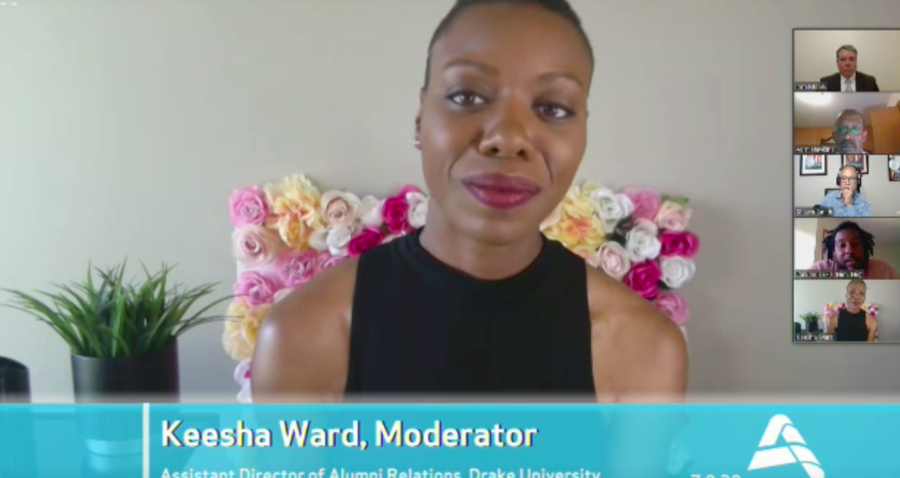‘Taking the Lead 2020’ focuses on correcting the judicial system
The third Zoom forum for “Taking the Lead 2020: Police and Justice” met Thursday night to discuss correcting the judicial system that surrounds the overrepresentation of Black, Latinx and Indigenous Americans.
July 9, 2020
The third Zoom forum for “Taking the Lead 2020: Police and Justice” met Thursday night to discuss correcting the judicial system that surrounds the overrepresentation of Black, Latinx and Indigenous Americans.
The forum was moderated by Keesha Ward, the assistant director of Alumni Relations at Drake University and Jordan Brooks, director of equity, inclusion and multicultural students at Iowa State University. The panelist consisted of Story County attorney Timothy Meals as well as defense attorney Shawn Smith.
Iowa’s incarceration rate is 568 people per 100,000. A majority of those people are Black, Indigenous or People of Color, while being less than 10 percent of the population as a whole, according to information provided from the NAACP.
Smith said he has fairly diverse demographics of people who he represents locally for criminal offense, but the majority of them are white, opposed to the State Public Offenders office, who represent a higher percentage of Black people due to them being contracted by the state to represent those who are indigent.
Black people are also overrepresented in the poverty rate in the state, making up 30.7 percent in 2018 while only being 11.2 percent of Iowa’s population, according to the Iowa Data Center.
Meals said the overrepresentation of minorities is at the forefront of his office and there is going to be mandatory implicit bias training for the staff.
“As a leader in the office, I am constantly reminding people that we should not treat people differently based on those characteristics of color or race or background and so we work pretty hard at trying to be fair and equitable with everybody that is charged in our county,” Meals said.
Another issue discussed was plea agreements. At times, people will accept a plea agreement instead of facing a trial because the risk is too great due to overcharging, causing some to plead guilty even if they are not.
Meals said any case for his office has to be reviewed by a judge and determine whether there is probable cause for the charges and it is not Story County’s goal to overcharge any individual.
“I think over the past few months we have seen kind of a resurgence of a lot of these issues but to me, these issues have been around a long, long time,” Smith said. “It is not just pervasive in law enforcement culture, these issues are pervasive in all aspects of society. The criminalization of Black and Brown people has been around since preemancipation and I think once we change that narrative from one of Black men, in particular, being aggressive or criminal. Once we change that narrative we will see a lot of our social organization be able to change the culture so that they understand that Black people, People of Color and Brown people aren’t violent, aren’t criminal and once we understand that we can change the culture that will eventually flow down to law enforcement.”
The final discussion will take place 6 p.m. July 23 with the mayor of Ames and Iowa State University president; for questions or comments see the Ames NAACP website.

















